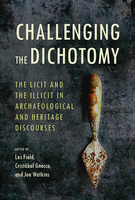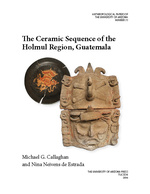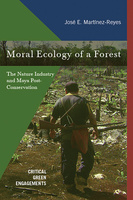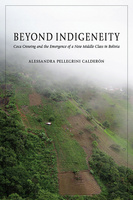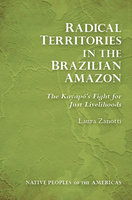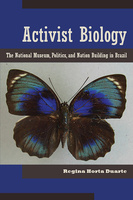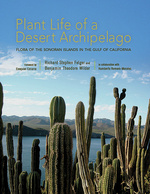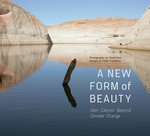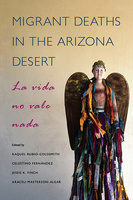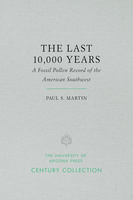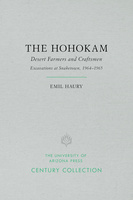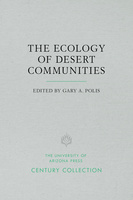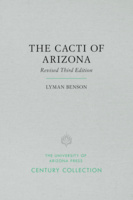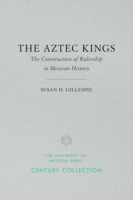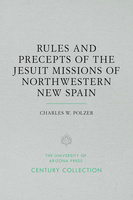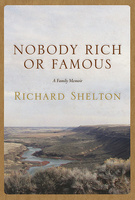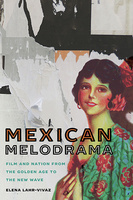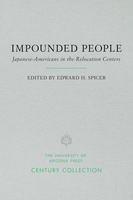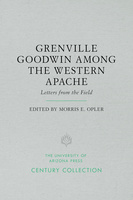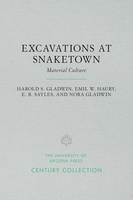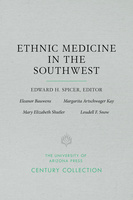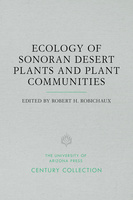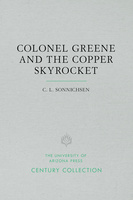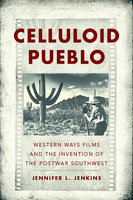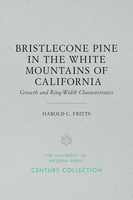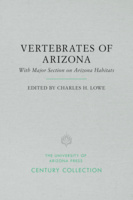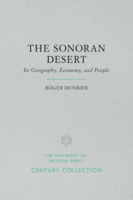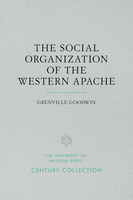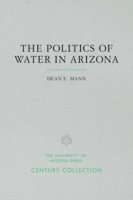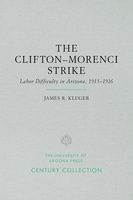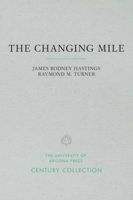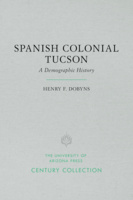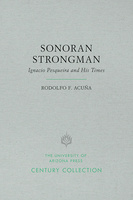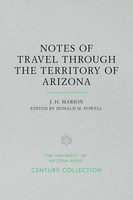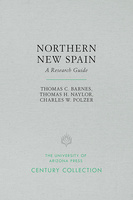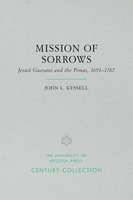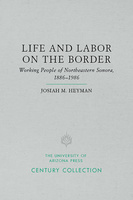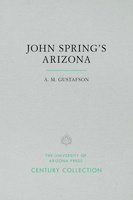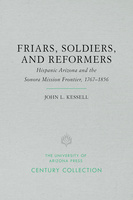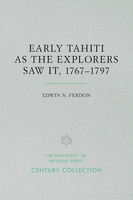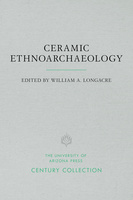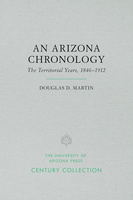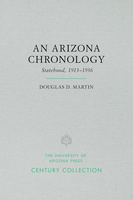The University of Arizona Press is the premier publisher of academic, regional, and literary works in the state of Arizona. They disseminate ideas and knowledge of lasting value that enrich understanding, inspire curiosity, and enlighten readers. They advance the University of Arizona’s mission by connecting scholarship and creative expression to readers worldwide.
Showing 451-500 of 1,708 items.
Challenging the Dichotomy
The Licit and the Illicit in Archaeological and Heritage Discourses
The University of Arizona Press
Challenging the Dichotomy explores how dichotomies regarding heritage dominate the discussions of ethics, practices, and institutions. Contributing authors underscore the challenge to the old paradigms from multiple forces. The case studies and discourses, both ethnographic and archaeological, arise from a wide variety of regional contexts and cultures.
Voices of Crime
Constructing and Contesting Social Control in Modern Latin America
The University of Arizona Press
Voices of Crime examines how different social groups constructed, contested, navigated, and negotiated notions of crime, criminality, and justice. The authors seek to document and illustrate the everyday experiences of crime in particular settings, emphasizing under-researched historical actors such as criminals, victims, and police officers. The fresh research offers a critical approach to the very definition of crime and its perpetrators, suggesting that “not only the actions of the poor and racial others but also the state can be termed as criminal.”
The Ceramic Sequence of the Holmul Region, Guatemala
The University of Arizona Press
New and comprehensive sequencing of the ceramics in Guatemala’s Holmul region provides answers to important questions in Maya archaeology. In this comprehensive and highly illustrated new study, authors Callaghan and Neivens de Estrada use type:variety-mode classification to define a ceramic sequence that spans approximately 1,600 years.
Moral Ecology of a Forest
The Nature Industry and Maya Post-Conservation
The University of Arizona Press
Moral Ecology of a Forest provides an ethnographic account of conservation politics, particularly the conflict between Western conservation and Mayan ontological ecology. Author José E. Martínez-Reyes documents how Maya moral ecologies of the forest support their continuous resistance amid the pressures and global schemes of the nature industry.
Beyond Indigeneity
Coca Growing and the Emergence of a New Middle Class in Bolivia
The University of Arizona Press
Beyond Indigeneity offers new analysis of indigenous identity and social mobility that changes the discourse in Latin American social anthropology. Alessandra Pellegrini Calderón explores the positioning of coca growers in Bolivia and their reluctance to embrace the politics of indigeneity.
Radical Territories in the Brazilian Amazon
The Kayapó’s Fight for Just Livelihoods
The University of Arizona Press
Radical Territories in the Brazilian Amazon sheds light on the creative and groundbreaking efforts Kayapó peoples deploy to protect their lands and livelihoods in Brazil. Laura Zanotti shows how Kayapó communities are using diverse pathways to make a sustainable future for their peoples and lands. The author advances anthropological approaches to understanding how indigenous groups cultivate self-determination strategies in conflict-ridden landscapes.
Activist Biology
The National Museum, Politics, and Nation Building in Brazil
The University of Arizona Press
Activist Biology is the story of a group of biologists at the National Museum in Rio de Janeiro who joined the drive to renew the Brazilian nation, claiming as their weapon the voice of their fledgling field. It offers a portrait of science as a creative and transformative pathway. This book will intrigue anyone fascinated by environmental history and Latin American political and social life in the 1920s and 1930s.
Plant Life of a Desert Archipelago
Flora of the Sonoran Islands in the Gulf of California
By Richard Stephen Felger, Benjamin Theodore Wilder, and Humberto Romero-Morales; Foreword by Exequiel Ezcurra
The University of Arizona Press
Plant Life of a Desert Archipelago is the first in-depth coverage of the plants on islands in the Gulf of California found in between the coasts of Baja California and Sonora. This collective effort weaves together careful and accurate botanical science with the rich cultural and stunning physical setting of this island realm.
A New Form of Beauty
Glen Canyon Beyond Climate Change
By Peter Goin and Peter Friederici
The University of Arizona Press
Contemplating humanity’s role in the world it is creating, Peter Goin and Peter Friederici ask if the uncertainties inherent in Glen Canyon herald an unpredictable new future. They challenge us to question how we look at the world, how we live in it, and what the future will be.
Migrant Deaths in the Arizona Desert
La vida no vale nada
The University of Arizona Press
Migrant Deaths in the Arizona Desert addresses the tragic results of government policies on immigration. The book’s central question is why are migrants dying on our border? The authors constitute a multidisciplinary group reflecting on the issues of death, migration, and policy.
The Last 10,000 Years
A Fossil Pollen Record of the American Southwest
The University of Arizona Press
The Hohokam
Desert Farmers and Craftsmen, Excavations at Snaketown, 1964–1965
The University of Arizona Press
The Aztec Kings
The Construction of Rulership in Mexican History
The University of Arizona Press
Winner of the Erminie Wheeler-Voegelin Book Award from the American Society for Ethnohistory, The Aztec Kings is the first major study to take into account the Aztec cyclical conception of time and treat indigenous historical traditions as symbolic statements in narrative form. Susan D. Gillespie focuses on the dynastic history of the Mexica of Tenochtitlan. By demonstrating that most of Aztec history is nonliteral, she sheds new light on Aztec culture and on the function of history in society. By relating the cyclical structure of Aztec dynastic history to similar traditions of African and Polynesian peoples, she introduces a broader perspective on the function of history in society and on how and why history must change.
Rules and Precepts of the Jesuit Missions of Northwestern New Spain
The University of Arizona Press
Once a River
Bird Life and Habitat Changes on the Middle Gila
The University of Arizona Press
Nobody Rich or Famous
A Family Memoir
The University of Arizona Press
Once in a while, a book comes along that redefines the concept of family. Frank McCourt did it with Angela’s Ashes; Annie Dillard did it with An American Childhood. In Nobody Rich or Famous, award-winning poet and author Richard Shelton immerses us in the hardscrabble lives of his Boise, Idaho, clan during the 1930s and ’40s. This is memoir in its finest tradition, illuminating today’s cultural chasm between the haves and have-nots. It is the true story of a family and how it got that way.
Mexican Melodrama
Film and Nation from the Golden Age to the New Wave
The University of Arizona Press
Mexican Melodrama offers a timely look at critically acclaimed films that serve as key referents in discussions of Mexican cinema. Elena Lahr-Vivaz artfully portrays the dominant conventions of historical and contemporary Mexican cinema, showing how new-wave directors draw from a previous generation to produce meaning in the present.
Impounded People
Japanese-Americans in the Relocation Centers
The University of Arizona Press
Grenville Goodwin Among the Western Apache
Letters from the Field
Edited by Morris E. Opler
The University of Arizona Press
Ethnic Medicine in the Southwest
Edited by Edward H. Spicer; By Eleanor Bauwens, Margarita Artschwager Kay, Mary Elizabeth Shutler, and Loudell F. Snow
The University of Arizona Press
Ethnic Medicine in the Southwest explores traditions guiding the medical arts of Yaqui, Anglo, Black and Mexican American communities and points out the relationship between alternative and scientific medicine. Beliefs prevail that illness may be punishment for sin, or caused by witchcraft or overwork. Treatment may include dreams, herbs, massage, or prayer. While practitioners in these communities are not necessarily licensed in the legal sense, they are nonetheless trusted and often effective.
Ecology of Sonoran Desert Plants and Plant Communities
Edited by Robert H. Robichaux
The University of Arizona Press
Colonel Greene and the Copper Skyrocket
The Spectacular Rise and Fall of William Cornell Greene: Copper King, Cattle Baron, and Promoter Extraordinary in Mexico, the American Southwest, and the New York Financial District
The University of Arizona Press
Celluloid Pueblo
Western Ways Films and the Invention of the Postwar Southwest
The University of Arizona Press
Celluloid Pueblo tells the story of Western Ways Features and its role in the invention of the Southwest of the imagination. The story closely follows the boom-and-bust arc of this region in the mid-twentieth century and the constantly evolving representations of an exotic—but safe and domesticated—frontier and the landscape, regional development, and diverse cultures of Arizona and the Southwest.
Bristlecone Pine in the White Mountains of California
Growth and Ring-Width Characteristics
The University of Arizona Press
Papers of the Laboratory of Tree-Ring Research, No. 4
The Vertebrates of Arizona
With Major Section on Arizona Habitats
Edited by Charles H. Lowe
The University of Arizona Press
The Social Organization of the Western Apache
By Grenville Goodwin; Preface by Keith H. Basso
The University of Arizona Press
The Mollusks of the Arid Southwest
With an Arizona Check List
The University of Arizona Press
The Clifton-Morenci Strike
Labor Difficulty in Arizona, 1915–1916
The University of Arizona Press
People of the Desert and Sea
Ethnobotany of the Seri Indians
The University of Arizona Press
Notes of Travel Through the Territory of Arizona
By J. H. Marion; Edited by Donald M. Powell
The University of Arizona Press
Mission of Sorrows
Jesuit Guevavi and the Pimas, 1691–1767
By John L. Kessell; Foreword by Ernest J. Burrus
The University of Arizona Press
Life and Labor on the Border
Working People of Northeastern Sonora, Mexico, 1886–1986
The University of Arizona Press
This book traces the development of the urban working class in northern Sonora over the period of a century. Drawing on an extensive collection of life histories over several generations, Heyman describes what has happened to families as people have left the countryside to work for American-owned companies in northern Sonora or to cross the border to find other employment.
Friars, Soldiers, and Reformers
Hispanic Arizona and the Sonora Mission Frontier, 1767–1856
The University of Arizona Press
Forging the Copper Collar
Arizona's Labor-Management War of 1901–1921
The University of Arizona Press
An Arizona Chronology
Statehood, 1913–1936
By Douglas D. Martin; Edited by Patricia G. Paylore
The University of Arizona Press
Stay Informed
Subscribe nowRecent News


